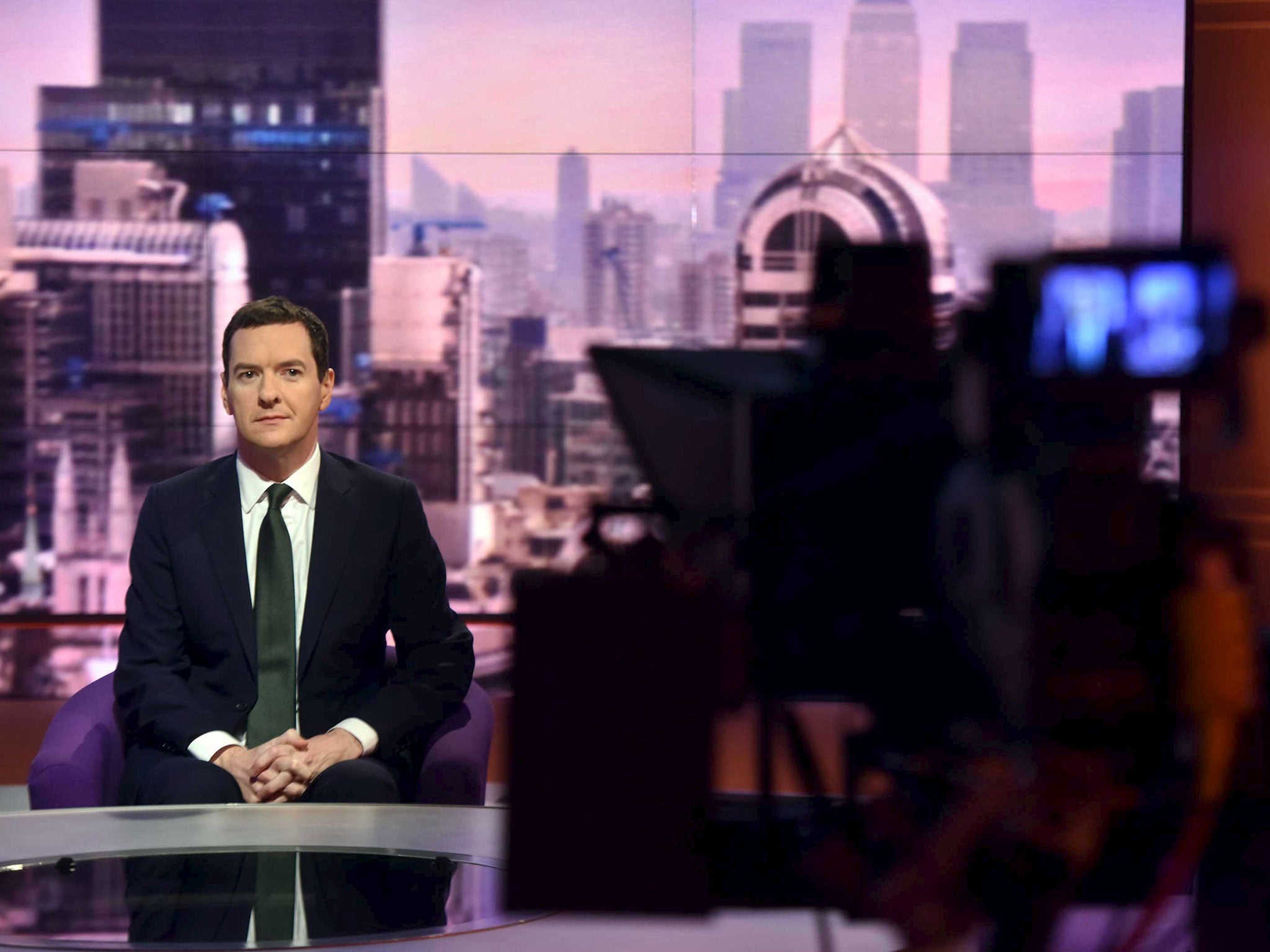George Osborne prepares to backtrack on £10bn surplus pledge to soften tax credit cuts
Chancellor hints at amending deficit reduction target to give him leeway to lessen cuts in public expenditure

The Government is preparing to backtrack on its pledge to run a £10bn budget surplus by 2020 as George Osborne looks for ways to fund a tax-credit climbdown.
Speaking ahead of this week’s Comprehensive Spending Review, the Chancellor hinted that he was considering amending his deficit-reduction target to give him leeway to lessen cuts in public expenditure.
However, he insisted that cuts to police budgets would still go ahead, although they would be partly offset by an increase in counter-terrorism funding of 30 per cent.
Mr Osborne announced that he had reached agreement with all departments on the extent of the budget cuts they would face ahead of his statement to Parliament on Wednesday.
The police, courts, further education, local government and business are all facing spending reductions of up to 30 per cent. There could also be cuts in some areas of public health spending, despite the Government’s pledge to protect the NHS.

In an attempt to lessen the pain and in the light of official figures showing the worst deficit for any October since 2009, speculation has been growing that Mr Osborne would reduce the £10bn surplus target he set in his summer budget.
Pressed twice in an interview on the BBC1 Andrew Marr Show, Mr Osborne refused to confirm that the target was still in place. “The precise level of the surplus will be set out in the forecasts on Wednesday,” he said.
But he hinted that he intended to soften the impact of the Government’s planned £4.3bn cut to tax credits – potentially delaying the changes until the full effects of the new national minimum wage were felt by workers.
He said he would respond to “perfectly legitimate concerns” that low-paid households would suffer dramatic cuts in income, but insisted election promises to slash £12bn from the welfare budget remained on track.
“I’m pretty confident we can deliver what we promised at the general election, which is savings in welfare, savings in government departments – but for a purpose, which is the economic security that enables jobs to be created and living standards to rise.”
But Mr Osborne suggested he had little sympathy with an intensive lobbying campaign by the police over the budget cuts they are facing. He said forces should share of deficit-reduction measures and declined repeatedly to offer any assurance that officer numbers would not be hit.
In response to Mr Osborne’s refusal to commit to his £10bn surplus target in 2019/20, John McDonnell, the shadow Chancellor, said it showed that his economic plans were “in utter chaos”.
“We all know that George Osborne gave up a long time ago on his 2010 promise to eradicate the deficit by today; but now he can’t even stick to the deficit-reduction plans he announced as recently as July,” said Mr McDonnell.
Other measures expected in the spending review include an increase in the NHS budget, cuts to school sixth-form spending and a rise in petrol duty.
Join our commenting forum
Join thought-provoking conversations, follow other Independent readers and see their replies
Comments
Bookmark popover
Removed from bookmarks